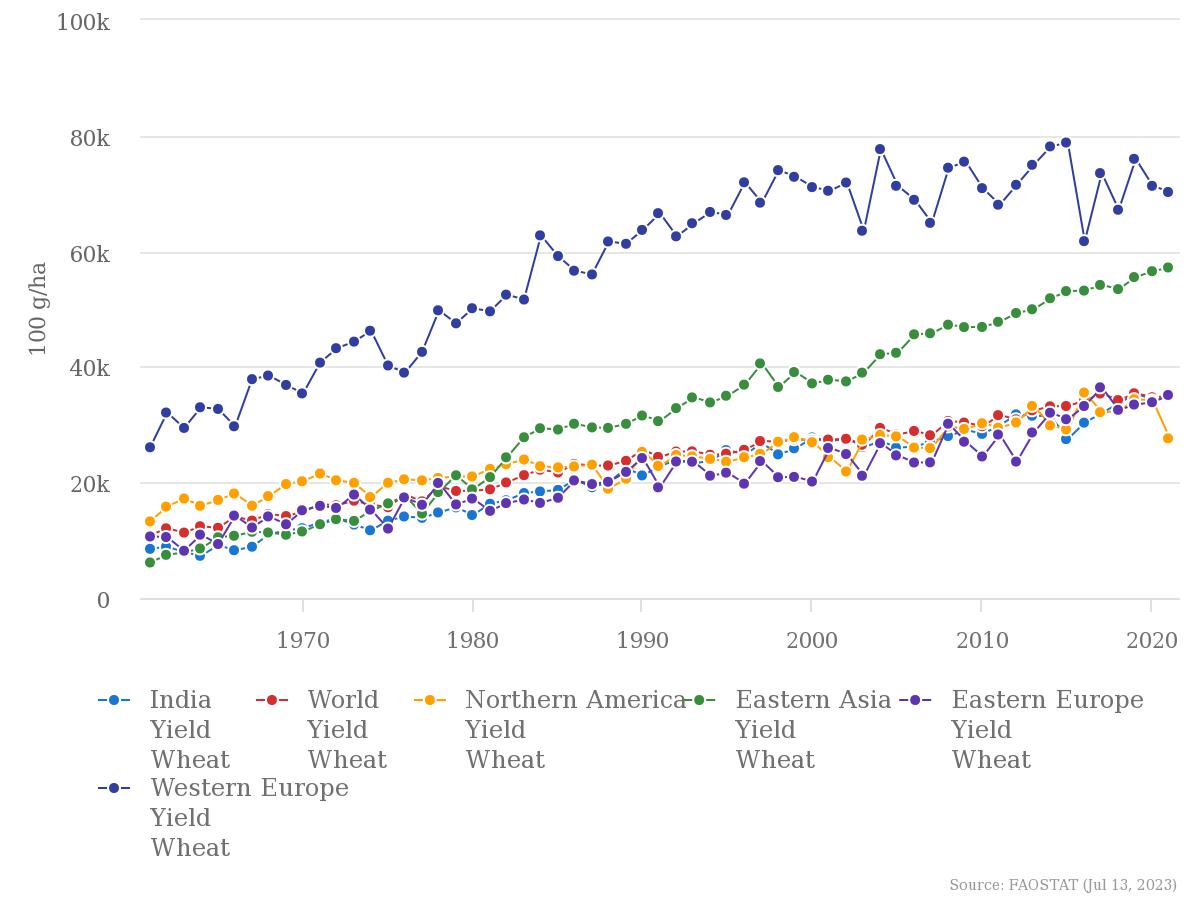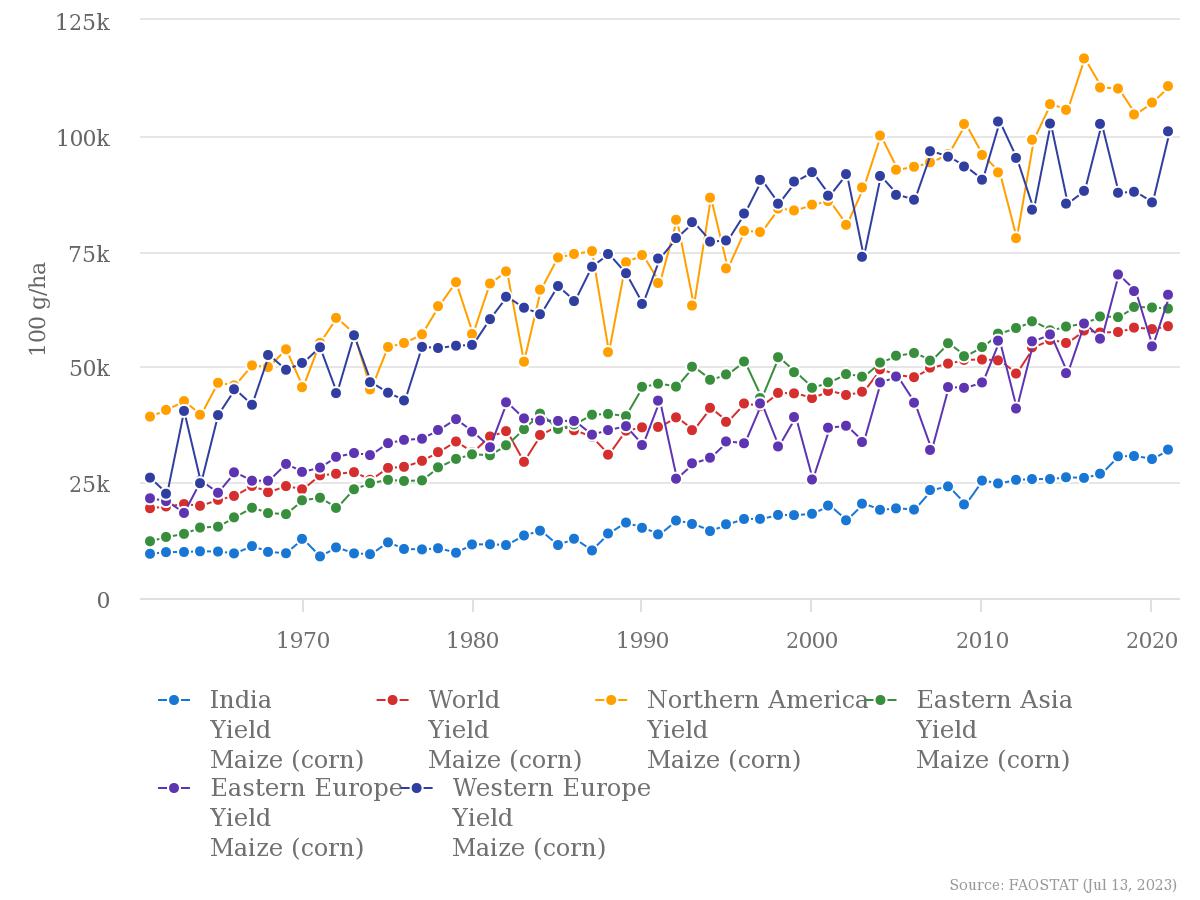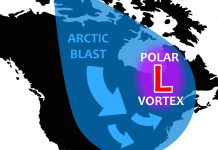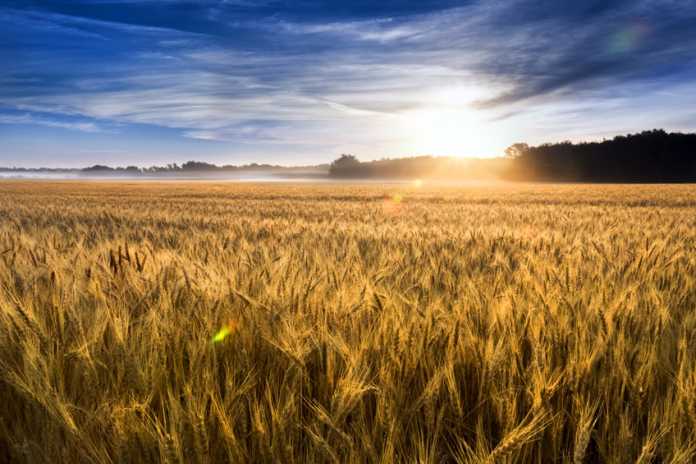A recent article in The Conversation claims that new research shows that climate change is changing the jet stream, in turn causing multiple extreme weather events around the world at once, which could disrupt food production and cause global famine. Historical experience, agricultural data, and research on the jet stream suggest this is false.
The author the Conversation article, “Climate change threatens to cause ‘synchronised harvest failures’ across the globe, with implications for Australia’s food security,” is Douglas Bardsley, an associate professor at the University of Adelaide, Australia. Along with warning that climate change will shift the jet stream causing simultaneous extreme weather events, Bardsley expresses skepticism concerning “liberalized” global food trade.
Bardsley writes:
Climate change models for North America and Europe had previously suggested global warming would increase crop yields in the short term. Those regional increases were expected to buffer losses elsewhere in global food supply.
But new evidence suggests climate-related changes to fast flowing winds in the upper atmosphere (the jet stream) could trigger simultaneous extreme weather events in multiple locations, with serious implications for global food security.
Bardsley argues that “synchronized” crop failures in multiple major production regions of the world are imminent because of “meandering” jet streams.
First, the jet stream has always “meandered,” sometimes touching the tropics, sometimes staying further north, these movements are long established as an expected element that contributes to different weather patterns.
A weakening of the jet stream is what many climate alarmists are worried about, as the resulting increased “waviness” would generate more extreme weather. However, recent research indicates that the jet stream may be strengthening instead, which implies there would be less extreme weather.
It is also false to imply, however, that until recently extreme weather impacting crop production only happened in a single location or region at a time, or very few locations at once. Long-term global data refutes such claims.
Some skepticism is warranted towards the research paper referenced, as it relies primarily on climate modelling, which as Climate Realism has repeatedly noted, is unreliable. Bardsley says that some old climate models underestimated some losses in yields of some corn and wheat producing regions, but this sounds more like struggling to predict the weather rather than any measurable impact of long-term climate change.
The paper referenced does plug corn and wheat statistics from the United Nations Food and Agriculture Organization (FAO) into at least one of its models in order to analyze the response of yields to “amplified wave patterns,” but considering that modern warming has occurred for several decades now, if theories were correct about increasing crop-damaging weather, then the FAO data itself should bear this trend out. It does not.
Using the same database as the authors, looking at corn (maize) and wheat yields, it is apparent that the overall trend is of relatively steady improvements in yields almost everywhere in the world for both corn and wheat, with occasional “bad years.” This is normal for agriculture. (See Figures below)
Since the record begins in 1961:
- World wheat yields have increased 220 percent;
- World corn (maize) yields have increased 202 percent.


These claims are not new or unique, Climate Realism has refuted the “multiple breadbasket failure” claim before. For example, “No, Eco-Business, Global Food Production is NOT Being Harmed by Climate Change,” recently refuted claims similar to those made by Bardsely, that climate induced simultaneous weather extremes would hit multiple food producing regions at once in causing global crop declines. The truth is history is replete with instances of crop failures in multiple countries in different regions of the world in the same year or growing season. Bardsley presents no “evidence,” beyond computer model projections that climate change has or will cause such simultaneous occurrences to become more frequent.
Bardsley also claimed that the Pacific Ocean’s naturally occurring El Niño Southern Oscillation will get worse, leading to worse drought in his home country of Australia, but this claim is the precise opposite of what climate alarmists were claiming last year during La Niña, as covered by Climate Realism, here. In either case, there is no data showing ENSO becoming more extreme.
It may be a good idea for countries to be self-sufficient in food production to the best of their ability in order to hedge against disastrous shortages due to political factors or events outside of their control. Having said that, it is a fact that the globalization in food production and trade, that Bardsley is skeptical of, has lead to a significant decline in hunger and malnutrition, in part by cushioning the blow of isolated droughts and crop failures in one or multiple countries, with shipments from other regions where crops have done well.
Extreme weather like severe drought will continue to occur regardless of climate change. Unpredictable events like war, pandemics, and weather disasters can and have occurred in multiple parts of the world at once. It is illegitimate for Conversation and Bardsley to blame climate change for such events and monstrous for them to fearmonger about extreme scenarios that history and the available agricultural data strongly suggest are unrealistic. Amid modest warming, crop production is increasing and hunger is declining.


















Hi Linnea, Excellent article. I was curious if you have any publications on the meandering jet stream and if it get stronger or weaker? Here in the EU, the fear mongering reaches insane levels. They claim the current heat waves (well, even their existence is uncertain due to different T measurement: the 2 meter measuring height is replaced by measurements at ground level. The difference: 10-15C!) are due to a weakening jet stream that starts meandering more strongly.